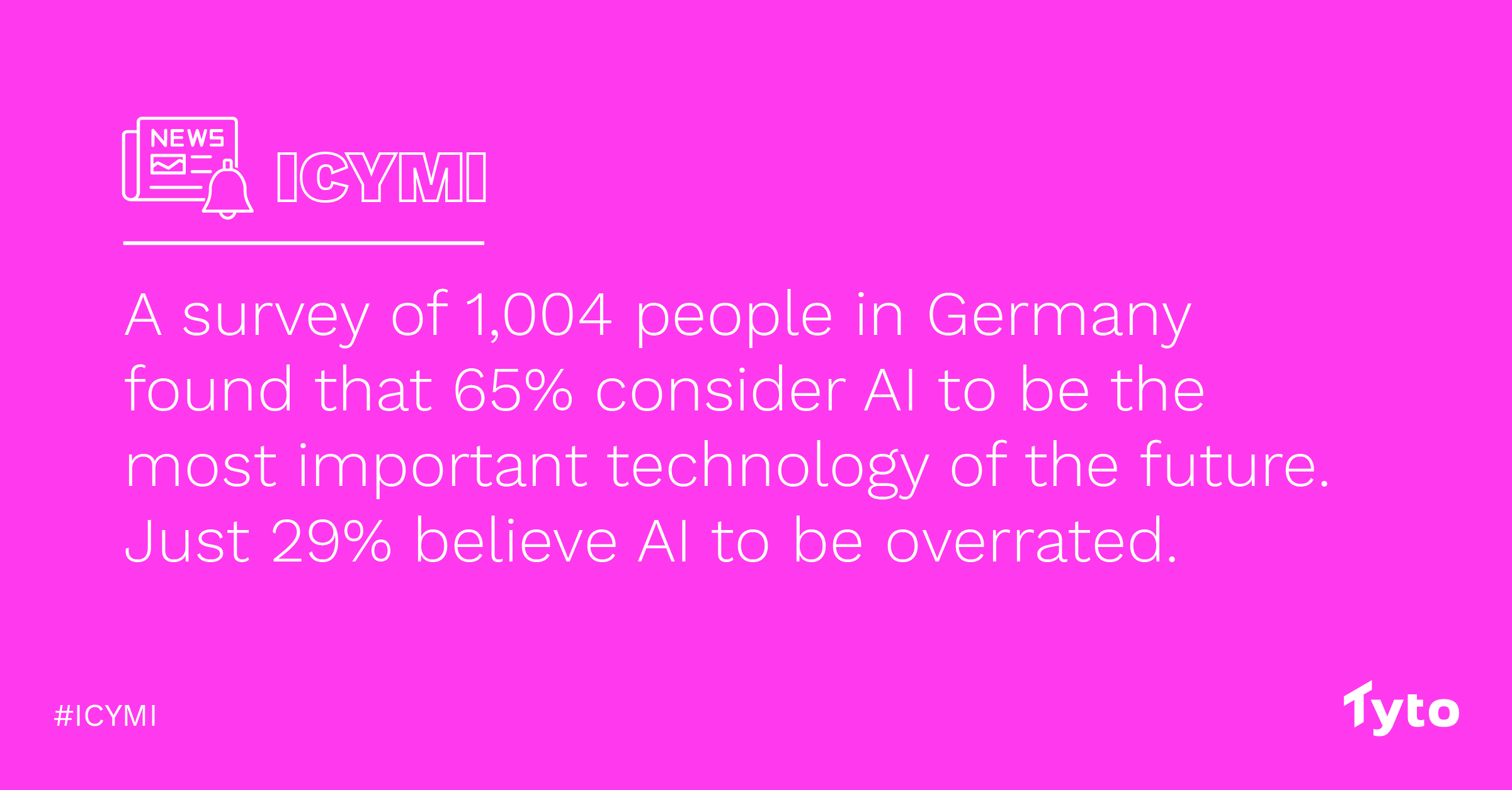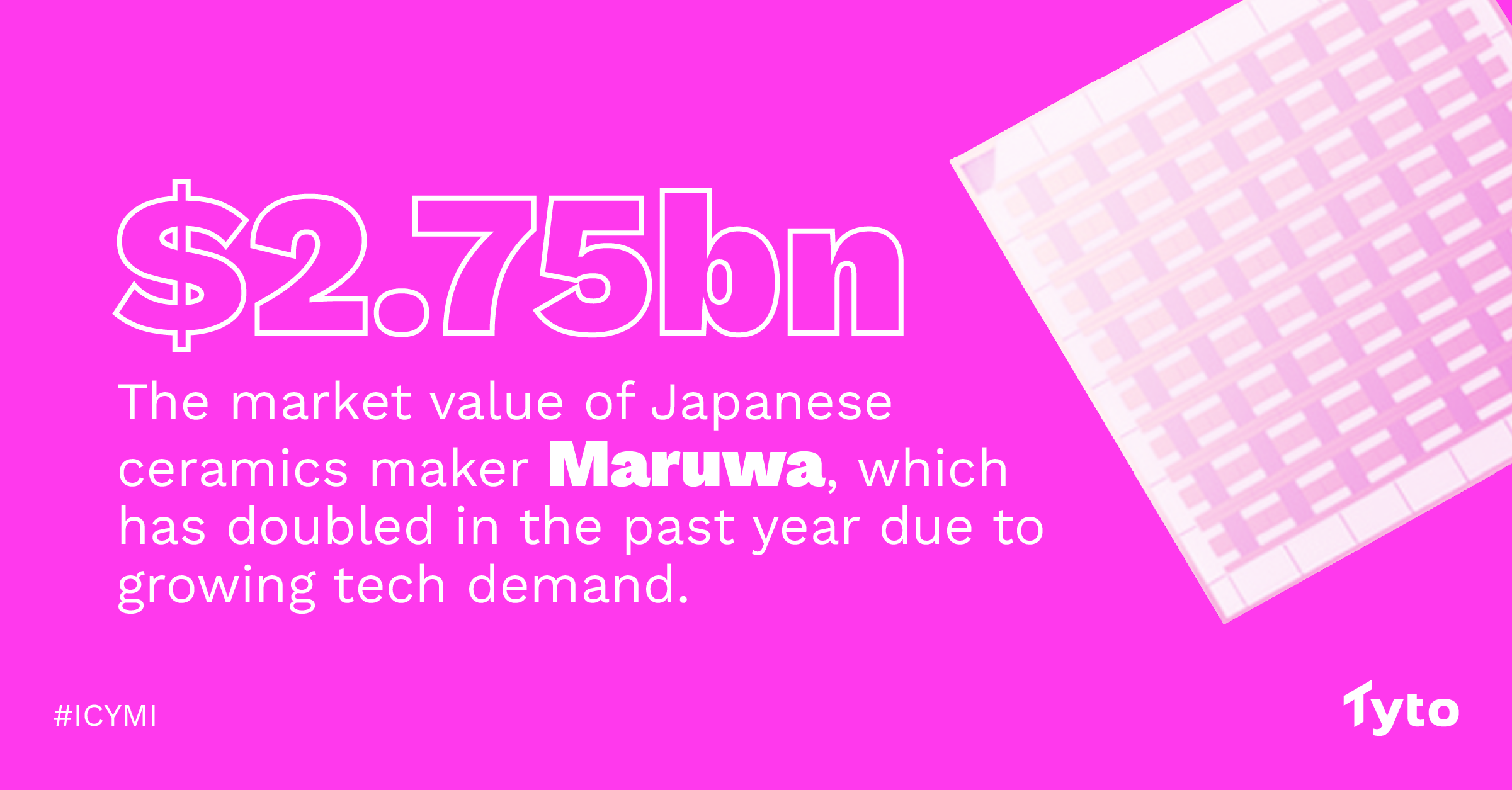ICYMI: A look at the brighter side of tech
Welcome to ICYMI – a weekly snapshot of European news stories that have given me pause for thought. ICYMI is a chance for you to go beyond the front-page headlines and find out what other stories may be worthy of your attention.
It’s easy to feel doom and gloom when reading about technology in the media. Journalists, understandably, want to engage their readers and sometimes that means reporting on concerns and problems with today’s tech. Some examples from this blog series include the environmental impact of AI, cybersecurity failings, and the challenges technology faces in navigating diversity. Rather than feed the negativity, this week we’re going to look at some more positive news pieces.
Let’s start with artificial intelligence. We often hear what businesses and CEOs think about AI, but what do everyday people believe? A new survey from the digital association Bitkom gives us some insight, indicating a broadly optimistic view of the technology. According to the survey of 1,004 people in Germany, almost two thirds (65%) consider AI to be the most important technology of the future and more than three quarters (77%) believe that AI will be crucial to whether German companies will be successful worldwide in the future. Only 29% believe AI is overrated or a hype, while more than half (56%) expect AI to change the world as fundamentally as the invention of the internal combustion engine or electrification.
The findings indicate that most people (in Germany, at least) believe AI will shape the economy in the future. The USA was considered the world’s leading AI nation by 36% of respondents, followed by China (24%).

200 years of history helping to solve a new tech problem
In other news, a story about a Japanese ceramics company highlights how innovation can come from some surprising places.
A recent profile in the Financial Times shared the story of Maruwa, a company with more than two centuries of history in making ceramics and porcelain tableware, which has seen its stock value skyrocket thanks to diversifying into manufacturing ceramic circuit boards and semiconductors.
After being overlooked by securities analysts for years, Maruwa was recently the focus of a report from Goldman Sachs. A major challenge across the tech industry, from electric vehicles to AI server farms, is managing the build-up of heat. Maruwa has been able to transfer its traditional craftmanship to building components capable of dissipating heat from electronics even when operating at high temperatures. As a result of Maruwa cornering this part of the market, it now has a market capitalisation of $2.75bn, with its share price almost doubling over the past year.
As the tech industry matures and new problems arise, it will be fascinating to see how other companies, like Maruwa, can rise to the challenge and address those demands.

Can you spot a fake?
We’ve written before about politics and technology, including how the EU is implementing new requirements on tech companies to fight election misinformation. Good news then that people (well, the Dutch at least) are getting better at spotting fake news.
According to a report from the Netherlands’ Central Bureau for Statistics, more than two thirds (67%) of the country’s population said they had come across information online they thought was not true. That’s up from 63% two years ago.
Of the people who had doubts about what they read online, 66% went on to check for themselves whether the information was true or not, either by visiting the news source, checking other websites, or talking about the information offline. This is important, as it shows people have the digital skills to challenge and research information for themselves.
From a PR perspective, is there an opportunity here for companies who can help citizens spot fake news or give them the tools to check and verify stories? Perhaps there is also a need to educate those who did not know or were unwilling to do this research?
This survey was carried out across the EU, and the Dutch had the highest percentage of inhabitants who claimed they’ve come across fake news, beating the EU average of 49%. It’s not clear from the report whether people in the Netherlands are exposed to more fake news than people in other countries or why they are better at recognising it, but with so much concern in media and politics about the impact of disinformation on upcoming elections, the results of this survey should be reassuring.



